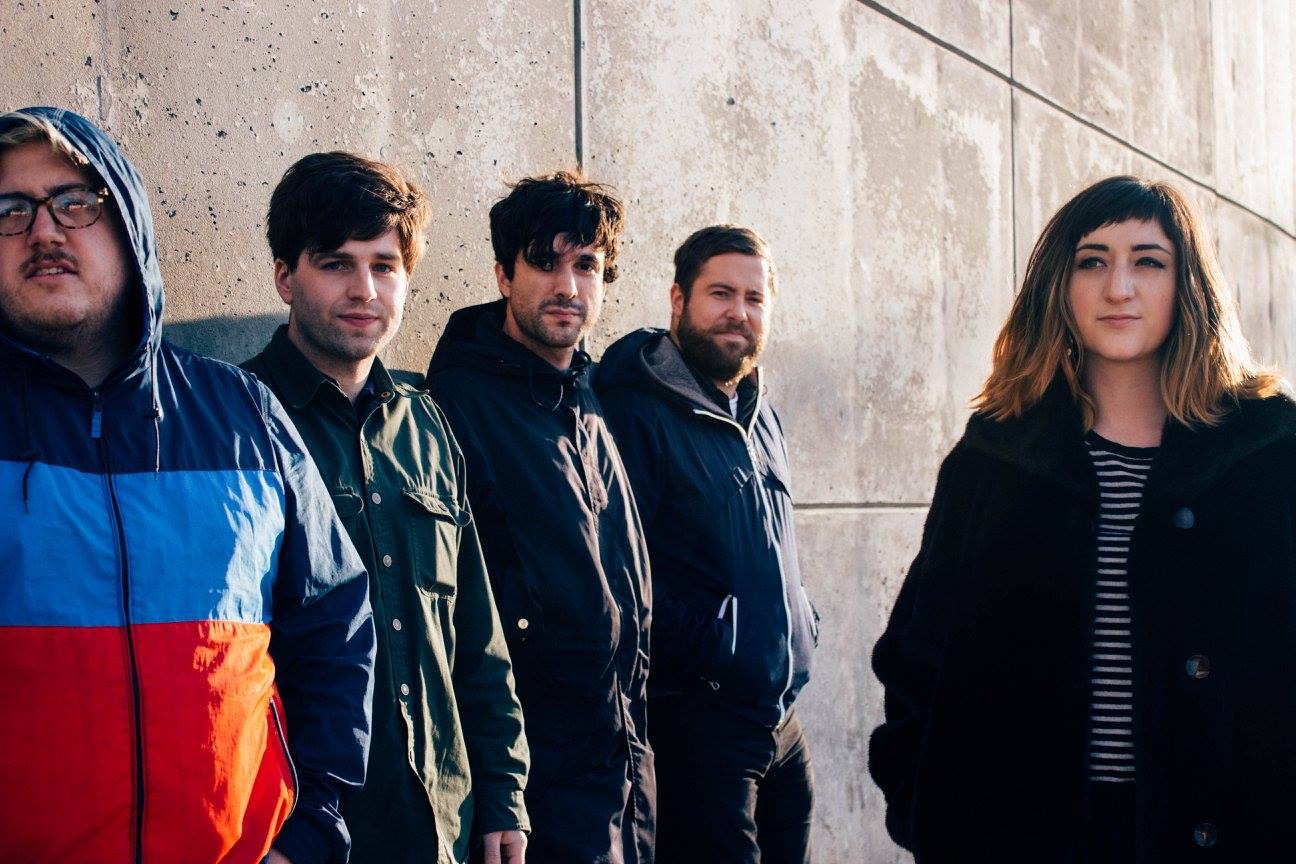
Photo by Tramaine George
Baltimore’s Wildhoney will have you know they are not about shoegaze.
Rather than adopting the relic label—one they consider loaded with negative connotations—they’d actually prefer to be left alone when it comes to defining them as anything specific other than pop. With harmonizing melodies that scream ethereal beauty coupled with fuzzy guitar chords that shimmer like twilight, they paint a shoegazer’s trance, or something of it. But, by defying the genre that is known for dampened vocals with an extended use of pedals, Wildhoney is that methodical breath between classic shoegaze and pop by placing an importance on good songwriting, not on droned-out guitar parts.
But is shoegaze really cycling back or is it a genre that was meant to remain exactly where it took off in the early 90s? Wildhoney is answering the question with their concrete vocals and definitive chord progressions that pull vintage influences while forging a refreshing and introspective soundscape of dream pop that, perhaps, is gooier than that of their predecessors like the Cocteau Twins or even Lush. It’s what the group does so well: manipulating and experimenting with sound that imitates past and present, ultimately giving way to a new genre of effervescent bliss that feels more real than most.
Wildhoney is coming back to Boston for the fifth or sixth time this Saturday, January 13th at the Great Scott alongside Horse Jumper of Love, Mini Dresses and Strange Passage. We caught up with them to dive deeper into the mystifying question of shoegaze and how curating their eclectic sound creates a new realm of gazing rock that feels more artful than ever before.
Allston Pudding: Tell me a bit about yourselves. How long have you been a group for? Did you all sort of morph into the shoegaze/ indie pop-punk realm together as you started to play or was that vibe your intention?
Wildhoney: We’ve been a band for five years, we don’t champion any one specific genre aside from pop. We on the whole don’t care for capital S shoegaze, we are informed by everything from Astrud Gilberto to The Byrds. Sound manipulation and good songwriting is what interests us first and foremost.
AP: Would you even label your sound something of shoegaze or would you reject that sound altogether?
WH: We reject the label shoegaze, along with it still having a negative connotation. We feel we have more to offer than effects pedals and lazy singing.
AP: What are those negative connotations you speak of? Are you tired of people labeling your band as shoegaze or dream pop?
WH: Early on we got tired of being called shoegaze because people would be like, “Oh this record is good/great whatever but ya know, it’s just shoegaze.” It felt backhanded, and from the beginning we always placed the importance of songs over stylized guitar tones. Early shoegaze bands like MBV, Ride, and Slowdive wrote legit great tunes while still having style. But most shoegaze bands, in our opinion, current or older, definitely rely on pedals and lazy singing to create a bland atmosphere then write a killer tune. That’s not to say there are not good current [bands] informed by it like Deerhunter, smut, The Pains of Being Pure at Heart, Narrow Head, No Joy, Alvvays and Blue Smiley (rip). Without a doubt, we love MBV, Ride, Cocteau Twins and The Telescopes but we are a pop band that expresses itself through songcraft and experimenting with sound.
AP: You released a remastered edition late last year, would you say you are experimenting more with sound or are you staying pretty true to your original intentions?
WH: The recently remixed and remastered songs were a chance to correct missed opportunities on the first go around. Plus we’ve wanted to release these songs on tape for awhile since we no longer sell the compilation that they are on. We are always experimenting with sound, more now so than ever. There’s a whole world of sounds out there, that aren’t just typical rock band set up. Seems to me, most bands kinda coast on their chosen sound.
AP: Do you all work on and edit your songs together?
WH: The songs come together in a lot of different ways. No set rules.
AP: Biggest influences as a band?
WH: Our biggest influence is creative restlessness. What bands we listen to is secondary to the impulse to create art.
AP: How important are the use of effects in your band? Do you record with them in mind or do you jam acoustically and then use effects after (distortion, delay, etc.)?
WH: Pedals are just tools that enhance the foundation of, firstly, a good song. Live, a distortion pedal is the most “fun.”
AP: Goals moving into the New Year?
WH: 2018 is solely focused on LP2.
Wildhoney with Horse Jumper of Love, Mini Dresses, Strange Passage
Saturday, January 13
Great Scott
1222 Commonwealth Ave.
Allston, MA 02134
Doors 9pm | 21+ | $12
Facebook event | Tickets
